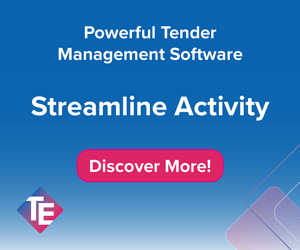People who market R&D and technology tend to do best with technical subject matter experts (SMEs) that bolster their sales efforts. These engineers and scientists know what their company produces, how progress is managed, and how product quality is ensured.
Sales vs. SMEs
While the sales team is whooping a can-do attitude about just about any opportunity that crosses its path, the SME team is tempering that enthusiasm with a tinge of reality: What are our large risks? What else do we need to know? How long could this take? How much could this cost?
Some customers have their go-to sources for specific areas of interest or extensive knowledge of the subject matter they manage, while others do not.
Where Things Can Go Wrong
Federal government and prime contractors who purchase big-ticket programs also want real answers to these questions. The biggest risks for these customers are knowing which vendors to trust and what to ask.
Some customers have their go-to sources for specific areas of interest or extensive knowledge of the subject matter they manage, while others do not. For this latter group, online search engines—such as Google—can serve as “instant SME” knowledge sites when preparing for meetings.
However, be cautious. Although often well-meaning, these data dumps can result in a wealth of irrelevant information and questions not actually germane to the topic at hand. Wild web claims and false promises can skew the customer’s focus and divert the meeting conversations into time-wasting, non-value-added discussions. Time that could be spent addressing the key risks, clarifying the scope of a program, and getting a mutually realistic grip on schedule and cost expectations may be wasted on explaining why something that a website says can be done in three months cannot actually be done at all—or would blow up on ignition.
Whether your customer meetings are remote or face-to-face, the easiest, no-cost way for internal sales and SME teams to maintain control of the meetings is to incorporate topical web searches into the meeting preparation.
Preparing a Best-Value Strategy
Whether your customer meetings are remote or face-to-face, the easiest, no-cost way for internal sales and SME teams to maintain control of the meetings is to incorporate topical web searches into the meeting preparation. The following are some basic guidelines on how to approach these searches:
Do you need to know precisely what you’re looking for?
- Not necessarily. “Freefall” searches often provide the best results.
- Start with broad topics (e.g., gizbit orbiting satellites).
- Pull the threads based on (real and perceived) risk areas.
How much time should this take?
- Determine how much value this information offers and then pull search threads accordingly. For informational discussions to expand market exposure, this search could take less than an hour. For very large programs with intricate work scopes and significant integration tasks, searches might span several days, and strategy sessions to develop the best counterattack could take another several days.
- It depends on the procurement and the team’s familiarity with this customer.
What sources result in high-yield searches?
- Competitors’ websites – relevant achievements and supporting data
- Government department websites – mission statements, funded programs, and personnel
- Technology blogs – new products, new research, and recent test results
- Prime contractor websites – press releases, current program successes, and personnel
When web searches are used effectively, they can supplement the combined efforts of marketing and technology experts to help enlighten customers about a high-value path that meets their program goals and results in sales for your team.
Shelley Owrutsky is a Cockeysville, Maryland-based technical writer for Saft, a global battery maker. She can be reached at shelley.owrutsky@saftamerica.com.



Join the Conversation